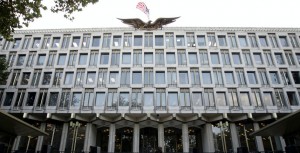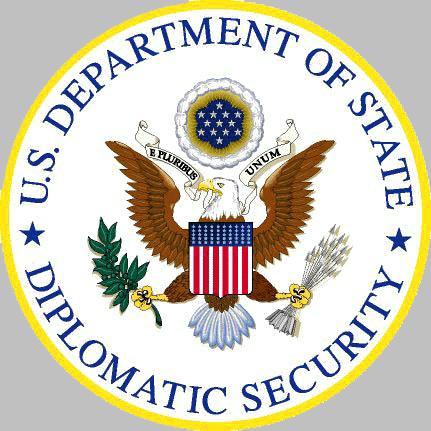GEORGIA

A former employee of the U.S. Embassy in London allegedly used his government computer at the embassy for phishing, hacking and cyberstalking, according to officials.
Michael C. Ford, 36, was charged by indictment on Tuesday with nine counts of cyberstalking, seven counts of computer hacking to extort and one count of wire fraud, officials said.
Ford is accused of engaging in a hacking and cyberstalking scheme in which, using stolen passwords, he obtained sexually explicit photographs and other personal information from victims’ email and social media accounts, according to officials.

He also threatened to share the photographs and personal information unless the victims agreed to certain demands, officials said.
“Ford is alleged to have hacked into hundreds of email accounts and tormented women across the country, by threatening to humiliate them unless they provided him with sexually explicit photos and videos,” said U.S. Attorney John Horn. “This sadistic conduct is all the more disturbing as Ford is alleged to have used the U.S. Embassy in London as a base for his cyberstalking campaign.”
These are the allegations against Parsons, according to the indictment:
- From January 2013 through May 2015, Ford, using various aliases that included “David Anderson” and “John Parsons,” engaged in a computer hacking and “sextortion” campaign to force numerous women to provide him with personal information and sexually explicit photographs and videos.
- Ford allegedly posed as a member of the fictitious “account deletion team” for a well-known email service provider and sent notices to thousands of potential victims, including members of college sororities, warning them that their accounts would be deleted if they did not provide their passwords.
- Using the passwords collected from this phishing scheme, Ford allegedly hacked into hundreds of email and social media accounts, stole sexually explicit photographs and personal identifying information, and saved both the photographs and to his personal repository.
- Ford then allegedly emailed the victims and threatened to release the photographs, which were attached to the emails, unless they obtained videos of “sexy girls” undressing in changing rooms at pools, gyms and clothing stores, and then sent the videos to him.
- When the victims either refused to comply or begged Ford to leave them alone, Ford responded with additional threats, including by reminding the victims that he knew where they lived.
- On several occasions, Ford allegedly followed through with his threats by sending sexually explicit photographs to victims’ family members and friends.
The defendant is presumed innocent unless and until proven guilty.

